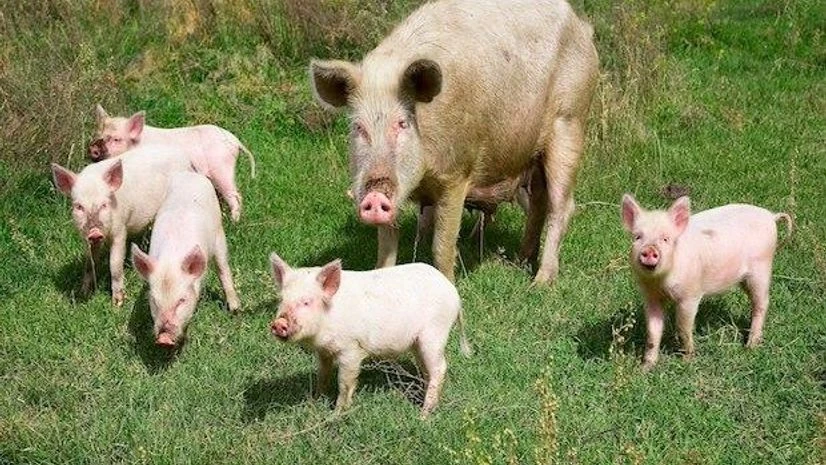The World Organization for Animal Health (WOAH) confirmed the African Swine fever outbreak on Tuesday, May 9.
The outbreak in Indonesia has killed 35,297 out of the 2,85,034 pigs on a farm in Indonesia's Bulan island, near Singapore.
The outbreak in Indonesia has killed 35,297 out of the 2,85,034 pigs on a farm in Indonesia's Bulan island, near Singapore.
What is the African Swine Fever virus?
African Swine Fever (ASF) is a viral disease affecting pigs and boars with a 100% fatality rate, reported the Food and Agriculture Organisation of the United Nations.
It is a double-stranded DNA virus in the Asfarviridae family. The virus is very contagious for domestic and wild pigs.
The virus is not a danger to humans, but impacts the pig population drastically and ultimately impacts the farming economy.
ASF has been in the headlines since 2018, and it has impacted more than 18 countries so far, and India is one such country.
According to the World Organisation for Animal Health, the virus is highly resistant to the environment and can survive on clothes, boots, wheels, and other materials.
Beyond all, the virus can survive in various pork products, such as ham, sausages or bacon.
Hence, human behaviour plays a critical role in spreading ASF across borders and the need to take adequate action.
It is a double-stranded DNA virus in the Asfarviridae family. The virus is very contagious for domestic and wild pigs.
The virus is not a danger to humans, but impacts the pig population drastically and ultimately impacts the farming economy.
ASF has been in the headlines since 2018, and it has impacted more than 18 countries so far, and India is one such country.
According to the World Organisation for Animal Health, the virus is highly resistant to the environment and can survive on clothes, boots, wheels, and other materials.
Beyond all, the virus can survive in various pork products, such as ham, sausages or bacon.
Hence, human behaviour plays a critical role in spreading ASF across borders and the need to take adequate action.
ASF socio-economic burden
ASF is not only a social problem but an economic one as well. In many countries, pig farming is a primary source of household income, and ASF has literally devastated family-run pig farms.
Pork meat is also a very popular source of animal protein, amounting to more than 35% of global meat intake. Consequently, ASF poses a vital problem for worldwide food security.
Another concern about the African swine fever outbreak is the imbalance of biodiversity, as ASF is not only striking domestic farm pigs but wild boars as well, including native breeds.
Pork meat is also a very popular source of animal protein, amounting to more than 35% of global meat intake. Consequently, ASF poses a vital problem for worldwide food security.
Another concern about the African swine fever outbreak is the imbalance of biodiversity, as ASF is not only striking domestic farm pigs but wild boars as well, including native breeds.
African Swine Fever Cases in India
The ASF wave has killed millions of pigs and drastically impacted meat and livestock production.
ASF cases have also been reported in India, and no reports so far of an outbreak impacting livestock yet.
ASF cases have also been reported in India, and no reports so far of an outbreak impacting livestock yet.
What are the symptoms of ASF?
Here are the common signs of African Swine Fever:
- High fever
- Decreased appetite
- Fatigue and weakness
- Red, blotchy skin, or skin lesions
- Diarrhoea and vomiting
- Coughing and difficulty breathing

)
